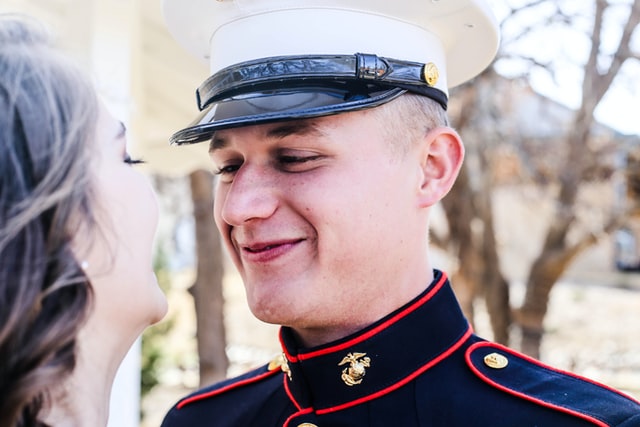Veterans sacrifice the best years of their life to defend America, yet, many don’t experience the peace and rest that they deserve upon returning to the USA. A recent article by KJazz 91.5 outlines how most post-9/11 veterans feel they were ‘set up to fail’ by civilian life, with the mixture of mental health issues, chaotic home communities and poor support networks creating a toxic mix. More than anything, veterans need a hand on the shoulder and welcoming voices to really be made to feel welcome and supported on return to America. Building that awareness of the support they can obtain, whether you’re a fellow veteran, a military wife, or just a concerned party, will help immeasurably.

Obtaining shelter
Arguably the most important factor for the proper reintegration of a veteran, and their family, is housing. Having shelter – a place to call your own and customize – is so important after years spent in ramshackle settlements throughout active warzones. Unfortunately, many veterans end up in non-ideal situations. The most recent U.S. Department of Housing and Urban Development found that 8% of the 500,000 homeless population are veteran adults, the single biggest group. There are plenty of programs available to help out, however, and raising awareness is key.
Most veterans and their families have already taken advantage of the VA loan. Needless to say, the program is beneficial; VA loan facts show that the lack of down payment, government guarantee and publicly estimated insurance make it an easier way to obtain housing when compared to other routes, and a safer one, too. However, veteran delinquencies are still all too common. The alternatives, including VA-run homelessness programs and local government alternatives, including Florida va loan options, fill in the gap, but are often poorly accessed by veterans who have spent time outside of the system. It is crucial to improve awareness and accessibility to these resources for veterans to ensure they receive the support and assistance they need.
Bringing the community
The key to bridging that gap, and ensuring that veterans can access the services they need, is in community. This challenge, of helping veterans in their transition to civilian life, has been highlighted as a key challenge for the Veteran’s Agency by American Progress. Veterans are targeted by businesses such as for-profit colleges due to their desire for qualifications and relatively high levels of disposable income (in addition to benefits like GI bill funding). They can be at risk of undergoing experiences which erode their public trust, often permanently.
Bespoke care from the community, families, and associates can help to prevent that becoming a reality for most veterans. Reinforcing the benefits of civilian life, and the trust and love that is shown by most, will help to provide veterans with the knowledge they need to integrate. Furthermore, it will help to protect them against those who would defraud or otherwise break the trust of veterans.
Building connections
A significant difficulty that many veterans face is in the day-to-day experience they have in civilian life. Military life is built on a combination of discipline and camaraderie. Colleagues become brothers, totally reliant on each other as it could be as important as life or death – literally. In civilian life, and especially the post-COVID world, it can be a lot more disconnected and with a lot less recognition. A family is important, of course, but even the shift in dynamic can lead to feelings of disconnection from the veteran.
These issues are key in assessing why veterans are so predisposed to mental health issues according to the Southern Nazarene University. Where relationships break down and there’s such a sudden change in status and routine, feelings of disappointment and a lack of security fill in. Military life is so structured and rigid that this is to be expected. For veterans, building a wide range of connections and finding a varied routine in their day-to-day life can help to target this.
Getting help
Ultimately, all of the best planning can go awry when mental health problems emerge. Given the rigors of war, and the trauma of seeing injury and death, there is no shame for soldiers in experiencing these emotions. Many veterans, however, do not access these services. The reasons behind this are fairly clear. As one 2019 study published by the Journal of Psychological Services clearly shows why – a lack of awareness, a fear of perceived stigma, and personal beliefs about who ‘needs’ treatment. Breaking down this stigma and showing veterans that it’s okay not to be okay is so important. Early intervention on mental health illness can help to prevent further degradation in condition, and secure a long-term recovery.
Supporting veterans should be a goal for any community. Their sacrifice is everybody’s sacrifice, a selfless act in the name of security. Making civilian life a warm embrace, rather than a distant idea, shows the ultimate gratitude for that.











